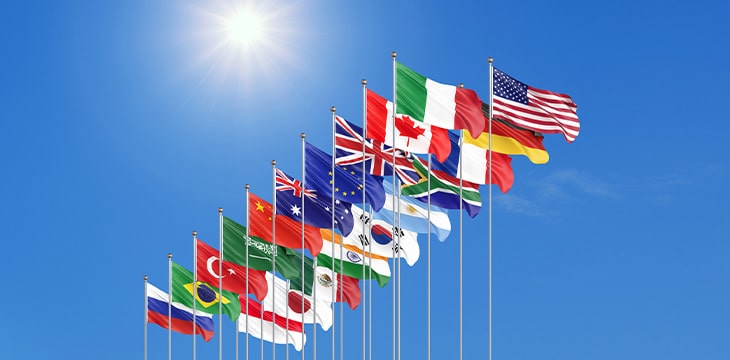|
Getting your Trinity Audio player ready...
|
Some central bankers from the Group of 20 (G20) countries support regulating privately issued digital currencies over issuing central bank digital currencies (CBDCs), including Philip Lowe, the Australian central bank governor.
According to a report by Reuters, while speaking at a panel discussion at the G20 finance officials meeting in Indonesia, Lowe shared that in his opinion, private digital assets can be more beneficial for consumers than CBDCs, assuming their issuers can be regulated properly.
Lowe’s stance is that the private sector has proven to be better than central banks at innovating and designing new features for digital assets.
“I tend to think that the private solution is going to be better – if we can get the regulatory arrangements right—because the private sector is better than the central bank at innovating and designing features for these tokens,” he said.
Lowe pointed out that CBDCs are also likely to be expensive for central banks to set up and maintain. The regulatory approach that the central banker suggests is for tokens to be regulated just like bank deposits or for them to be integrated into the individual country’s financial systems.
Speaking in the same panel, the CEO of the Hong Kong Monetary Authority (HKMA), Eddie Yue, stated that more needed to be done to regulate digital assets, especially if the risks from their use in DeFi are to be mitigated.
Yue asserted that despite recent events like the crash of Terra’s algorithmic stablecoin TerraUSD (UST) and its sister token LUNA that greatly affected confidence in DeFi, the innovation would continue to be important in the future of finance.
“Despite the Terra-Luna incident I think crypto and DeFi won’t disappear—though they might be held back—because the technology and the business innovation behind these developments are likely to be important for our future financial system,” Yue said.
G20 already considering coordinated digital assets regulations
While still implementing plans to launch their CBDCs like many other central banks, the Hong Kong and Australian financial regulators have also been laying down the regulatory framework for digital assets in their jurisdictions.
Hong Kong has been more stringent on the industry. In February, the regulator introduced laws to license digital asset exchanges and limit their services to only professional investors.
The Reserve Bank of Australia has been more hands-off with the industry, allowing it to thrive while opining that the fad and FOMO of the market will soon fade out. However, the Australian Prudential Regulations Authority (APRA) has proposed broad digital assets regulations.
Meanwhile, the G20’s Financial Stability Board (FSB) is working on a digital assets regulations proposal for the first time in its history. While the FSB has no powers to enforce the proposal, which will be released in October, the G20 member countries have all committed to implementing the recommendations individually.
To learn more about central bank digital currencies and some of the design decisions that need to be considered when creating and launching it, read nChain’s CBDC playbook.
Watch: The BSV Global Blockchain Convention panel, Blockchain for Government Data & Applications

 02-23-2026
02-23-2026 




